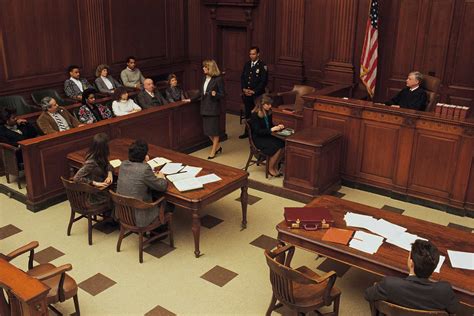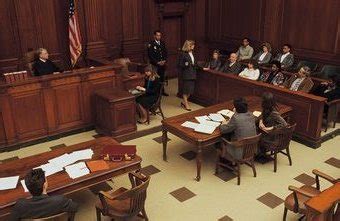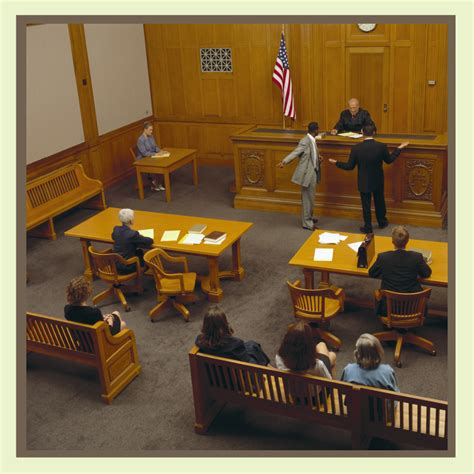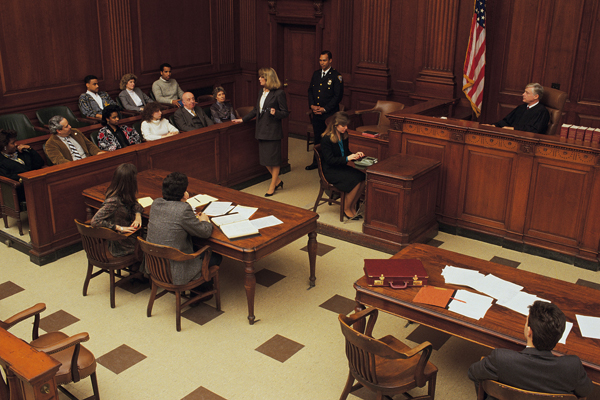The landmark Supreme Court case Gideon v. Wainwright fundamentally reshaped the landscape of legal representation in the United States. Decided in 1963, this pivotal ruling established the constitutional right to counsel for defendants in criminal cases who cannot afford an attorney. Prior to Gideon, many accused individuals faced trials without legal representation, undermining the fairness of the judicial process. This article delves into the origins of the case, its transformative impact on state courts, and the subsequent evolution of the right to counsel. By examining these elements, we explore how Gideon v. Wainwright continues to influence justice and legal representation today.
Join bzcat.xyz for an in-depth exploration of this topic.
1. Background of Gideon v. Wainwright: Overview of the case’s origins and the circumstances leading to the Supreme Court’s involvement.
The landmark case of *Gideon v. Wainwright* originated from a 1961 criminal case in Florida. Clarence Earl Gideon, a poor and poorly educated drifter, was charged with breaking and entering, a felony. Unable to afford legal representation, Gideon requested that the court appoint him a lawyer. However, Florida law at the time only provided for court-appointed counsel in capital cases, so his request was denied. Forced to represent himself at trial, Gideon was ultimately convicted and sentenced to five years in prison.
Gideon, resolute in his belief that his trial was unfair, appealed his conviction to the Supreme Court. He argued that being denied legal representation violated his Sixth Amendment right to a fair trial. The case attracted widespread attention, as it raised critical questions about the fundamental rights of defendants and the availability of legal counsel for those who cannot afford it.
In 1963, the Supreme Court, in a unanimous decision, ruled in favor of Clarence Gideon. The Court held that the Sixth Amendment’s guarantee of legal counsel is a fundamental right, essential for a fair trial. This landmark ruling obligated states to provide attorneys for defendants unable to afford them. The decision dramatically reshaped the American criminal justice system and the availability of legal representation across the country.

2. The Right to Counsel Before Gideon: Examination of legal representation rights before the landmark decision.
The right to legal counsel in the United States was far from uniform before the groundbreaking decision in *Gideon v. Wainwright*. Prior to this case, the Sixth Amendment’s guarantee of a fair trial was frequently interpreted to exclude a universal right to legal representation. Many states only appointed lawyers for defendants facing capital punishment, leaving those accused of lesser crimes, particularly those without financial means, to navigate the legal system without legal guidance.
A stark disparity in access to legal representation resulted in a significant number of defendants, primarily those from low-income backgrounds, being denied a fair trial. These individuals, often lacking the legal knowledge and skills needed for effective self-defense, faced higher rates of wrongful convictions and harsher sentences. This lack of a guaranteed right to counsel created an uneven playing field within the judicial system, undermining the core principles of justice and fairness. The landmark decision in Gideon v. Wainwright marked a turning point, establishing the right to counsel as a fundamental aspect of a fair trial, guaranteeing this protection to all criminal defendants, regardless of their financial status.

3. Supreme Court Decision: Detailed analysis of the Court’s ruling and its constitutional basis.
The landmark Supreme Court case, *Gideon v. Wainwright*, established the Sixth Amendment’s guarantee of the right to counsel as a fundamental right essential for a fair trial. In a unanimous opinion penned by Justice Hugo Black, the Court declared that states must provide legal representation to defendants who lack the financial means to secure their own attorneys.
This ruling was grounded in the fundamental principle of a fair trial, as enshrined in the Constitution. The Court underscored the Sixth Amendment’s guarantee of legal representation as a cornerstone of justice, ensuring that every individual, regardless of financial means, has the chance to mount a proper defense against criminal accusations. Justice Black asserted that a fair trial is impossible without competent legal counsel, as it is indispensable for protecting the rights of the accused and upholding the integrity of the judicial process.
Gideon v. Wainwright reversed established precedent and state laws that did not require court-appointed lawyers for non-capital offenses. By guaranteeing this fundamental right to all criminal defendants, the case represented a major step forward in safeguarding the constitutional rights of the poor and fostering fairness within the judicial system.

4. Impact on State Courts: How the ruling affected state-level criminal proceedings and public defense systems.
Gideon v. Wainwright, a landmark Supreme Court decision, dramatically altered the landscape of state-level criminal proceedings and public defense systems nationwide. The ruling, which mandated states to provide legal counsel for indigent defendants, prompted significant reforms in public defense practices. To comply with the ruling, states were compelled to develop and finance public defender systems. This involved establishing dedicated offices, hiring qualified attorneys, and implementing procedures to ensure effective legal representation for all defendants who couldn’t afford their own counsel.
This decision spurred heightened scrutiny of the quality of legal defense, exposing stark disparities in resources among public defender offices across the nation. Many states struggled to meet the surge in demand for legal services, leading to overworked public defenders and concerns about the adequacy of representation. Despite these challenges, the ruling profoundly enhanced the fairness of criminal trials. By guaranteeing legal counsel for all defendants, regardless of financial means, the decision significantly improved the likelihood of a fair trial for all.
5. Expansion of the Right to Counsel: Subsequent cases influenced by Gideon v. Wainwright and further developments in legal representation.
The right to counsel, established in *Gideon v. Wainwright*, has continued to evolve through subsequent legal developments. Landmark decisions have expanded and clarified the scope of legal representation. For example, *Argersinger v. Hamlin* (1972) extended the right to counsel to misdemeanor cases where imprisonment was a possibility. *Powell v. Alabama* (1932), though decided before *Gideon*, reinforced the critical need for counsel in capital cases, further solidifying the right to legal representation in serious legal proceedings.
Furthermore, the landmark case of Strickland v. Washington (1984) set a clear standard for assessing claims of ineffective legal assistance, enabling defendants to contest inadequate representation. These decisions expanded upon the precedent established in Gideon v. Wainwright by strengthening the protections granted to defendants and providing a more precise definition of effective legal counsel. These significant developments have been instrumental in shaping contemporary public defense systems, guaranteeing that the fundamental principles of fair trial and justice are upheld throughout various legal proceedings.
6. Challenges and Criticisms: Ongoing issues in the implementation of the right to counsel and public defender system challenges.
While the landmark decision in *Gideon v. Wainwright* guaranteed the right to counsel, its implementation has been plagued by persistent challenges and criticism. A key concern is the stark disparity in resources and funding among public defender offices. These offices frequently grapple with overwhelming caseloads and meager budgets, raising serious questions about the quality of legal representation they can provide. Overburdened defenders, hampered by limited time and resources, struggle to deliver the thorough legal support their clients deserve.
Critics contend that the system’s effectiveness in providing legal assistance is not always guaranteed, especially when dealing with intricate legal matters or exhaustive investigations. The persistent disparity between the ideal of adequate representation and the reality of limited resources has ignited discussions about the need for reform. Efforts to address these challenges focus on advocating for enhanced funding, improved training, and systemic changes designed to strengthen the public defender system and ensure the full realization of the right to counsel in practice.
7. Gideon v. Wainwright in Modern Context: Relevance and application of the decision in today’s legal landscape.
The landmark decision in *Gideon v. Wainwright* continues to hold immense significance in the current legal landscape. While the context surrounding the right to legal counsel has evolved considerably, the case’s core principle – ensuring fairness in the criminal justice system through state-provided legal representation – remains a cornerstone. The implementation of this right has adjusted to accommodate the changing realities of our times.
Public defender systems face mounting pressure due to contemporary challenges. The rising complexity of criminal cases and the increasing reliance on technology in legal proceedings have significantly increased the workload for these offices. While the ruling aimed to guarantee fair representation, many public defender offices continue to struggle with overwhelming caseloads and insufficient funding. This persistent lack of resources can compromise the quality of legal defense provided to defendants.
Recent reforms and advocacy efforts aim to tackle these challenges by advocating for increased funding, improving case management practices, and enhancing training for public defenders. The continued importance of *Gideon v. Wainwright* highlights the need for ongoing efforts to guarantee that all defendants, regardless of their financial situation, have access to competent legal representation. As the legal system evolves to meet new challenges, the fundamental principles established in *Gideon v. Wainwright* remain crucial in the pursuit of justice and fairness within the criminal justice system.
bzcat.xyz
